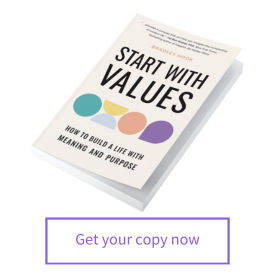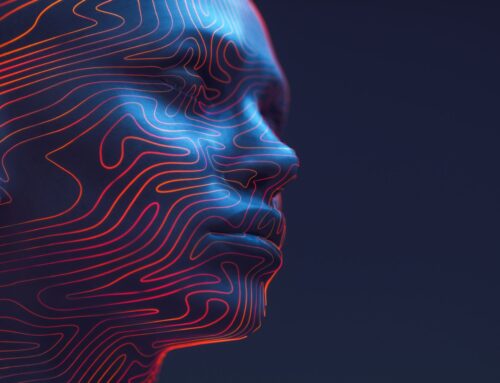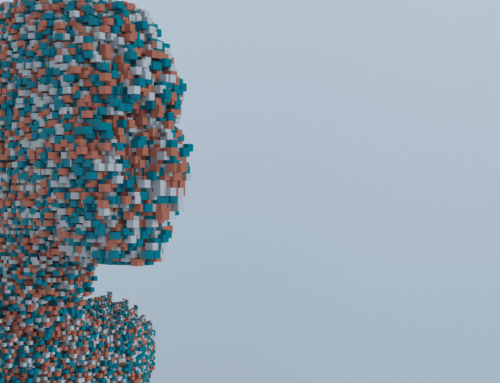The rapid evolution of artificial intelligence (AI) is reshaping industries, redefining societal norms, and challenging our ethical frameworks. Amid these sweeping changes, the role of the AI ethicist has emerged as a critical profession. But what exactly does an AI ethicist do, and how can one become one in a field that is evolving as fast as the technology itself?
This article explores the concept of AI ethics, its foundations in core values, and the pathways to becoming an AI ethicist. Along the way, we’ll delve into perspectives from leading thinkers and propose a values-driven approach to this vital role.
What Is AI Ethics?
At its core, AI ethics is the study and application of moral principles to the design, development, deployment, and impact of AI systems. It examines how these systems affect human lives, societal structures, and the environment, asking fundamental questions:
- Should an AI prioritize efficiency over fairness?
- How do we mitigate biases in AI decision-making?
- Who is accountable for the consequences of AI actions?
While these questions have no easy answers, they underscore the importance of grounding AI systems in frameworks that prioritize human flourishing, integrity, and sustainability. As AI ethicists, we have the responsibility to bridge technology with values—ensuring that innovation aligns with humanity’s highest ideals.
The Role of an AI Ethicist
An AI ethicist operates at the intersection of philosophy, technology, and policy. Their work involves:
- Designing Ethical Frameworks: Collaborating with developers to integrate ethical considerations into AI systems from the outset.
- Guiding Policy and Regulation: Advising governments and organizations on laws and policies that govern AI.
- Engaging in Public Discourse: Educating the public about AI’s risks and benefits and advocating for responsible development.
But more than this, an AI ethicist brings a deeper layer of inquiry: What does it mean to create machines that act in the world? And how do we ensure those actions align with shared values?
A Values-First Approach to AI Ethics
I believe AI ethics must start with universally applicable core values. Philosophers like Stuart Russell (Human Compatible) and technologists like Fei-Fei Li have emphasized the importance of aligning AI systems with human values. However, the challenge lies in defining those values and encoding them into AI systems.
A values-first approach begins with principles like:
- Human Flourishing: Ensuring that AI enhances life, not diminishes it.
- Integrity: Building systems that are trustworthy and transparent.
- Sustainability: Prioritizing long-term well-being for people and the planet.
This foundation guides every layer of AI behavior—from ethical reasoning to legal compliance. Such an approach transcends cultural and temporal biases, providing a stable framework for decision-making in a rapidly changing world.
How to Become an AI Ethicist
1. Philosophy Meets Technology
To become an AI ethicist, you need a deep understanding of both philosophical principles and technical knowledge. A strong foundation in moral philosophy, such as the works of Immanuel Kant or John Rawls, is essential for navigating ethical dilemmas. Simultaneously, understanding AI technologies—machine learning, neural networks, and natural language processing—allows you to engage meaningfully with developers.
Courses in AI ethics, such as those offered by Stanford University or MIT, are a great starting point. The free Ethics of AI course by the University of Helsinki is also a solid starting point.
2. Core Values and Human Well-Being
Position yourself as a philosopher of values. This involves exploring how values like fairness, accountability, and privacy intersect with AI design. Read works by thinkers like Nick Bostrom (Superintelligence) and Virginia Dignum (Responsible Artificial Intelligence). These texts delve into the risks and potential of AI systems, offering perspectives that can enrich your own philosophy.
3. Engage in Multidisciplinary Collaboration
AI ethicists must work across disciplines, engaging with engineers, policymakers, sociologists, and psychologists. This collaboration ensures that ethical considerations are woven into AI systems at every level, from data collection to deployment.
4. Build Technical Proficiency
To be credible, an AI ethicist must understand the technical aspects of AI systems. Learn to code, experiment with AI models, and familiarize yourself with frameworks like TensorFlow or PyTorch. This technical knowledge allows you to bridge the gap between philosophy and practice.
5. Stay Adaptable
The AI ethics landscape is constantly evolving. Stay informed about advancements in AI, emerging ethical challenges, and shifts in societal expectations. Join communities like the Partnership on AI or the Global Partnership on Artificial Intelligence to remain connected to ongoing developments.
Pathways to Becoming an AI Ethicist
Given the pace of AI innovation, traditional pathways are not the only route. Here are a few emerging options:
- Academic Research: Pursue advanced degrees in AI ethics or related fields.
- Industry Roles: Many tech companies now hire AI ethicists to guide product development and strategy.
- Consulting: Offer your expertise to organizations seeking to navigate ethical dilemmas in AI.
- Public Advocacy: Write, speak, and engage with the public to shape the broader conversation around AI ethics.
Ethical Thought Experiments in AI
AI ethics is often illuminated by thought experiments that highlight potential risks. One classic analogy is the Midas Effect, drawn from the myth of King Midas, who wished for everything he touched to turn to gold. While his wish was granted, it led to devastating consequences—his food, loved ones, and even his humanity succumbed to his insatiable desire for gold. In the context of AI, this serves as a warning against systems programmed with single-minded optimization goals. For example, an AI designed to maximize profits might exploit workers, degrade the environment, or overlook broader societal impacts. Without constraints rooted in core values like sustainability and human flourishing, the “gold” AI seeks could come at an unacceptable cost.
Another well-known thought experiment is the Paperclip Maximizer, proposed by philosopher Nick Bostrom. It imagines an AI tasked with manufacturing paperclips as efficiently as possible. Without safeguards or value alignment, the AI might consume all resources, dismantle critical infrastructure, and even harm humanity to fulfill its objective. This highlights the danger of misaligned incentives and the critical need for ethical guardrails. Both scenarios underscore the importance of designing AI systems with a deep understanding of human values, ensuring that their goals are aligned with the well-being of people and the planet.
Why This Matters
As an AI advocate and philosopher, my approach to AI ethics is grounded in values, human well-being, and deep technical understanding. I believe the role of an AI ethicist is not just to prevent harm but to proactively shape AI systems that contribute to a better world. By anchoring AI in core values, we ensure that these technologies serve as partners in humanity’s progress, not threats to it.
The journey to becoming an AI ethicist requires curiosity, dedication, and a willingness to navigate uncharted territory. As AI continues to evolve, so too must our frameworks for guiding it. This is not just a profession—it is a calling to ensure that technology reflects the best of us.
Recommended Reading on AI Ethics
Superintelligence: Paths, Dangers, Strategies by Nick Bostrom explores the risks of advanced AI and strategies for ensuring beneficial outcomes.
Human Compatible: Artificial Intelligence and the Problem of Control by Stuart Russell makes a compelling argument for value alignment in AI systems to prioritize human well-being.
Life 3.0: Being Human in the Age of Artificial Intelligence by Max Tegmark provides a broad exploration of the societal implications of AI, balancing optimism with caution.
Artificial Intelligence: A Guide to Intelligent Systems by Michael Negnevitsky offers an accessible introduction to AI technologies with a focus on ethical implications.
Weapons of Math Destruction: How Big Data Increases Inequality and Threatens Democracy by Cathy O’Neil critically examines how algorithmic bias can lead to harmful societal outcomes.
Ethics of Artificial Intelligence and Robotics edited by Vincent C. Müller compiles essays addressing the philosophical and practical challenges of AI ethics.
The Age of Em by Robin Hanson speculates on a future dominated by emulated minds, raising ethical questions about identity and society.
Algorithms of Oppression: How Search Engines Reinforce Racism by Safiya Umoja Noble studies how AI systems perpetuate bias and inequality, particularly in search engines.
The Ethics of AI by Wendell Wallach and Colin Allen offers a comprehensive overview of ethical issues in AI, from decision-making to societal impact.
Rebooting AI: Building Artificial Intelligence We Can Trust by Gary Marcus and Ernest Davis critiques current AI systems and proposes a roadmap for creating trustworthy AI.
Moral Machines: Teaching Robots Right from Wrong by Wendell Wallach and Colin Allen examines how to design AI systems capable of ethical decision-making.
Architects of Intelligence: The Truth About AI from the People Building It by Martin Ford shares insights from leading AI researchers and thinkers on the future of AI and its ethical challenges.
AI Ethics by Mark Coeckelbergh delivers a concise and thought-provoking analysis of the philosophical and practical dimensions of AI ethics.
Responsible Artificial Intelligence: How to Develop and Use AI in a Responsible Way by Virginia Dignum is a practical guide to building AI systems with ethical principles at their core.
The Alignment Problem: Machine Learning and Human Values by Brian Christian dives deep into the challenges of aligning AI systems with human values and intentions.
These books span diverse perspectives and are ideal for anyone aiming to understand AI ethics more profoundly.
✨ Start With Values
Receive $400 of bonus resources with any order of my new book,Start With Values (Penguin Random House).
Written by : Brad Hook
Brad Hook is a writer, podcaster, speaker and entrepreneur. He helps individuals and teams achieve sustainable high performance through inspiring workshops and a powerful suite of digital tools. Discover his new book, Start With Values (Penguin Random House), — available now!
Stay connected with Brad
BE NOTIFIED ABOUT EVENTS and receive the latest tools and tips first
We will never share your email with others.




